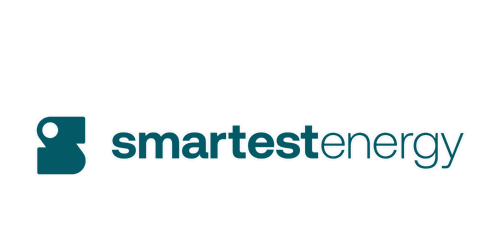Compare Business Electricity Rates
Compare business electricity rates in less than 30 seconds and secure a better deal for your business.
Easy online comparison
Live business electricity prices from 18 suppliers
Switch online today!
We’ve partnered with LoveBusiness so we’re able to work with top suppliers and keep our energy deals up to date and easy to compare
Business Electricity Prices Per kWh in March 2026
Business electricity rates in February 2026 for various business sizes in the UK are shown in the table below. These prices are an average of our panel of business electricity providers, so for the most accurate and up-to-date prices, obtain a business electricity quote through our comparison engine.
Business Electricity Prices By Business Size
| Micro Business | 0 – 5,000kWh | 29p | 49.1p | £904.22 | |
|---|---|---|---|---|---|
| Small Business | 5,000 – 15,000kWh | 27.3p | 51p | £2,916.15 | |
| Medium Business | 15,000 – 25,000kWh | 26.8p | 82.2p | £5,660.03 | |
| Large Business | 25,000 – 50,000kWh | 26.3p | 162.9p | £10,457.09 |
Business electricity rates per kWh in March 2026 are based on a two-year contract taken from a UK average price of tariffs from our panel of suppliers. The table shows the average business electricity unit rates per kWh, standing charge, and the annual cost based on yearly kWh usage for the median of the usage band and excludes VAT. Data is correct as of 1 March 2026.
No Standing Charge Tariffs Available
£0.00 Standing Charge
Limited Time Only
Why Compare Business Electricity Rates?
Comparing business electricity rates is an easy way to pay less on your commercial electricity bills.
Business electricity rate comparison takes just 30 seconds with Business Electricity Prices. These live business electricity rates are from a panel of 18 trusted business energy suppliers.
We just need your business address to get started with comparing business energy deals. Once you've found a business electricity quote that you like the look of, you can switch business energy supplier entirely online.
We'll aim to have you switched over to your new business electricity or gas supplier instantly on the day your contract ends, or within five working days if you are out of contract.
Small Business Electricity Rates
Business electricity rates for a small business in February 2026 are 27.8p per kWh on average, with an average daily standing charge of 45.6p. This translates to business electricity costs of approximately £238 per month for SMEs and £2,866 over the course of a year, based on a two-year contract commencing in January 2026 that utilises 10,000 kWh of commercial electricity annually.
A small business electric customer uses between 5,000 and 15,000 kWh. Any less than this is considered a micro-business.
Micro businesses can expect to pay around £879.76 a year if they use 2,500 kWh of business electricity a year, with their unit rate being 29p and an average daily standing charge of 42.4p.
Many owners decide to secure their rates with a fixed-rate tariff for two to three years for budgeting and predictable billing. Fixed-rate tariffs are currently available for terms of one to four years.
The truth is nobody knows with absolute certainty if wholesale electricity prices will go up or down. We can make predictions, but many prefer the security of knowing what they will pay.


Medium Business Electricity Rates
In February 2026, a typical medium or SME business in the UK would pay £457 a month on average on their commercial electricity rates. This is based on a unit price of 26.3p and a daily standing charge of 63.5p.
A medium-sized business electricity customer uses between 15,000 and 25,000 kWh annually.
Large Business Electricity Rates (Enterprise Commercial Electricity)
In February 2026, a typical larger business in the UK would pay around £862 a month on average for its commercial electricity rates. This is based on a unit price of 26.2p and a daily standing charge of 143.1p.
A large business electric customer uses between 25,000 and 50,000 kWh of commercial electricity annually. Any larger usage customers, such as corporate and enterprise electricity users, or businesses with half-hourly meters, would need a more bespoke business electricity quote. Our commercial energy experts will be happy to arrange a quote from our range of suppliers that specialise in this sector.
We will help you build a bespoke tariff. Incorporating energy management systems and ISO 50001 requirements before meter installation may be required. Securing great commercial electricity rates includes buying from wholesale suppliers and energy procurement schemes.
Energy Management Software For Large Consumption
Energy Management Software solutions deliver the ability to monitor and analyse electricity usage.
If you have a half-hourly or smart meter installed on your premises, then you can control your data using a range of integrated software solutions. Energy management allows your company to track actual usage versus averages.
Business Electricity Rates: Breakdown of Costs
Your business electricity bill includes the following costs:
- Unit rate (charged in pence per kWh)
- Daily standing charge (charge at a rate of pence per day)
- VAT at 20%
- Climate Change Levy (CCL)
Unit Rate
Business electricity unit rate is the cost of each kWh of business electricity, measured in pence per kWh. A kWh is the measurement for how much energy your business used in any time period, and you can find how many kWH of electricity you used by reading your business electricity meter.
Daily Standing Charge
A daily standing charge is set amount you are charged every day and is added to the bill's total. For example, a standing charge of 50p over the course of a 30-day month would equate to £15 a month. For an annual cost, the daily charge would be multiplied by 365 days, making an annual cost of £182.50.
Businesses must pay the standing charge regardless of how much energy they have used that day. The exception to this rule is businesses that are on a no-standing charge tariff.
A good business electricity deal will include a cost-effective balance between unit rate and daily standing charge.
VAT will be applied to the business electricity bill at a standard rate of 20%. Non-profit businesses may be eligible for a discounted VAT rate.
Businesses will also be charged a Climate Change Levy (CCL). CCL is a 'green tax' charged at 0.775p for electricity for the period April 2025 to March 31st 2026.
How Much Commercial Electricity Do Most Businesses Use Per Year?
Most customers we’ve helped switch to a new business electricity deal use about 10,000 kWh of energy per year - although many will use a far higher amount than that.
In 30 seconds, you can compare business electricity prices and select the tariff that’s right for your company.
Business Electricity Tariffs
Business electricity tariffs come in a variety of types and can have a big impact on your monthly commercial electricity bills.
So, it's important to think about your opening hours and which part of the day you're using the most electricity.
Here are the tariff types you can choose from.
-
Fixed-Rate Tariffs
The unit price you pay for electricity will be fixed for an agreed amount of time. Business owners who value budgeting and controlling their bills are attracted to this tariff.
With this tariff, there is no penalty for agreeing to a better deal with a new business electricity or business gas supplier, so long as you are within your renewal window.
-
Variable-Rate Tariffs
Variable-rate tariffs offer great flexibility. The unit price you pay for electricity will go up or down each month. This is a great fit for businesses that are open to more risk. This is a popular tariff in times of high electricity rates as many wait for prices to drop.
With this tariff, there is no penalty for agreeing to a better deal with a new business electricity or business gas supplier, so long as you are within your renewal window.
-
Renewable Tariffs
Renewable electricity tariffs offer a great option for businesses aiming to reduce their carbon footprint. Often there's not much difference in the unit price of renewable tariffs and some suppliers offer 100% renewable as standard.
With this tariff, there is no penalty for agreeing to a better deal with a new business electricity or business gas supplier, so long as you are within your renewal window.
-
Rollover Tariff
Businesses will be placed on a rollover tariff if a new deal has not been agreed. This is a legal contract for one year and the unit rate can be more expensive than previously paid.
With this tariff, there is no penalty for agreeing to a better deal with a new business electricity or business gas supplier at any time.
-
Deemed Rate Tariffs
Deemed rate tariffs are for businesses moving into new premises and have not agreed to a deal. This only happens when a business electricity contract has never been in place at the property. These are some of the most expensive business electricity rates.
With this tariff, there is no penalty for agreeing to a better deal with a new business electricity or business gas supplier at any time.
-
Flexible Tariffs
Large consumption business electricity users can purchase in bulk. Purchasing electricity at the beginning of the contract offers cheaper unit rates.
-
Economy 7 Tariffs
Economy 7 tariffs charge electricity at two different prices. The night rate is set at 7 hours of cheaper electricity and the price per kWh will be more expensive for the other 17 hours in the day. These tariffs are cheaper for businesses that mainly operate in off-peak hours.
With this tariff, there is no penalty for agreeing to a better deal with a new business electricity or business gas supplier, so long as you are within your renewal window.

Cheapest Business Electricity Tariffs
Different factors make suppliers the best value for your money, but in terms of unit rates, we have put together the cheapest fixed-price unit rates for you, to give you an idea of what the cheapest rate is.
| Cheapest 1-Year Fixed | Scottish Power | 24.1p | 90.2p | Get Tariffs Today |
| Cheapest 2-Year Fixed | Scottish Power | 24.2p | 90.2p | Get Tariffs Today |
| Cheapest 3-Year Fixed | Scottish Power | 24.3p | 90.2p | Get Tariffs Today |
Supplier prices are pulled from 1-, 2- and 3-year fixed-rate tariffs for the London region (region 12) and are for contracts beginning February 1, 2026. Prices are accurate based on 25,000 kWh annual usage and exclude VAT. Prices reflect a live market and are subject to fluctuation.
Business Electricity Quotes in 3 Simple Steps
Get cheaper business electricity quotes in 30 seconds with Business Electricity Prices. Compare business electricity rates today!
Enter a few details online
We just need some basic information like your postcode and contact details. It takes just 30 seconds to see live prices.
View live business electricity rates online
See live business electricity rates online from a trusted panel of UK suppliers.
Switch to your new supplier
We will handle the switching process once you have chosen your tariff and supplier. We will have you switched over within 5 working days.
Compare Business Electricity Suppliers
Comparing business electricity suppliers is important as they all vary when it comes to the business electricity rates they offer. Each energy supplier aims to cater to different business types, so there is no one-size-fits-all approach to choosing the best business energy supplier. As a result, it's worth knowing how tariffs vary between business electricity suppliers.
Business Electricity Rates by Supplier
In March 2026, ScottishPower is the cheapest business electricity supplier, with an annual cost of £5,229.23 for a UK average 2-year contract that uses 25,000 kWh of commercial energy per year. The table below shows the cheapest business electricity suppliers in terms of average UK rates from our panel of suppliers.
These rates are a snapshot for a single day across the UK, so for accurate, up-to-date prices and tariffs, obtain a business electricity quote through our comparison engine.
| ScottishPower | 27.5p | 21p | £5,576.65 | £464.72 | |
| Yü Energy | 26p | 118.1p | £5,631.07 | £469.26 | |
| SmartestEnergy Business | 25.3p | 64.4p | £5,295.06 | £441.26 | |
| EDF Energy | 31.2p | 37.5p | £6,376.88 | £531.41 | |
| Valda Energy | 26.2p | 99.5p | £5,603.18 | £466.93 | |
| British Gas Lite | 27.5p | 21p | £5,576.65 | £464.72 | |
| British Gas | 26.3p | 62p | £5,486.30 | £457.19 |
Business electricity supplier prices are an average of UK-wide tariffs for 2-year contracts with 25,000 kWh annual usage and exclude VAT. As of March 1, 2026. Prices reflect a live market and are subject to fluctuation.
Business Electricity Suppliers We Can Compare
Our business electricity supplier panel is made up of 18 trusted suppliers who can offer the perfect energy deal for your business. These suppliers offer some of the most attractive rates on the market. Compare business electricity deals today and switch to a business electricity supplier that suits your business best.
SMEs looking to compare business electricity rates can choose from the seven SME electricity suppliers on our panel. Prices for SMEs are live and you can view business electricity tariffs in just 30-seconds.
Businesses that have a half-hourly meter can compare prices from eleven business electricity suppliers that offer half-hourly tariffs and switch to a better deal. Due to half-hourly meter customers having a higher business energy usage, a bespoke business electricity quote is needed for this.
Domestic customers can also compare from our panel of energy suppliers that offer domestic energy.
| British Gas | British Gas is the UK’s largest energy supplier, providing gas and electricity to businesses and homes. | SME, Half-Hourly, domestic customers |
|---|---|---|
| British Gas Business | British Gas Business is the SME arm of British Gas, supplying commercial electricity and commercial gas to businesses across the UK. | SME, Half-Hourly |
| British Gas Lite | British Gas Lite is an online-only service that provides fixed-price business energy for small and medium-sized businesses (SMEs). | SME, Half-Hourly customers |
| British Gas Plus* | British Gas Plus was British Gas’ energy supplier offering for large businesses, offering 100% renewable energy. Customers have been migrated to British Gas Business | SME, Half-Hourly customers |
| EDF Energy | EDF Energy is Britain’s leading energy supplier for large businesses and Britain's largest generator of zero-carbon electricity [1]. | SME, Half-Hourly, domestic customers |
| E.ON Next | E.On Next supplies energy to homes and SMEs across the UK. | SME, Half-Hourly customers |
| SmartestEnergy Business | SmartestEnergy Business is a business-only energy supplier that supplies SME and bespoke customers alike with 100% renewable energy. | SME, Half-Hourly customers |
| Valda Energy | Valda Energy was founded in 2019 with a focus on offering great business energy tariffs to accommodate SME customers. | SME, Half-Hourly customers |
| ScottishPower | ScottishPower were the first energy supplier to produce 100% renewable electricity. They are one of the UK’s largest electricity and gas suppliers. | SME customers |
| npower Business Solutions | npower Business Solutions (nBS) is the commercial arm of E.ON. npower Business Solutions supplies commercial energy to large businesses and corporate customers. | Half-Hourly customers |
| Shell Energy | Shell Energy is one of the UK’s largest independent energy suppliers. Shell Energy supplies its more than 850,000 customers with 100% renewable energy sources. | Half-Hourly customers |
| TotalEnergies Gas & Power | Part of the global TotalEnergies group, TotalEnergies Gas & Power has been supplying large businesses and SMEs with commercial energy since 1987. | Half-Hourly customers |
| Crown Gas & Power | Part of the Crown Oil Group, Crown Gas & Power was formed in 2011 to provide commercial gas and electricity to UK businesses. | Half-Hourly customers |
| Drax | Drax provides competitive business electricity tariffs to larger UK companies. They are part of the Drax Group that owns Drax Power Plant in Selby, North Yorkshire | Half-Hourly customers |
| Yü Energy | Yü Energy is a business energy supplier established in 2013. Yü Energy is part of the Yü Group that suppliers electricity, gas and water to UK businesses. | Half-Hourly customers |
*British Gas Plus ceased trading in 2025. All renewals are with British Gas Business.
In 30 seconds, you can get business electricity tariffs that suit your company.
What Are Business Electricity Rates?
Business electricity rates are the price of the unit rate of a business electricity tariff, commonly known as the price per kWh. Tariffs are made up of the unit rate, as well as the daily standing charge; however, the unit rate will have the strongest impact on your bill, and so most businesses look at this first. It is best practice to consider both the business electricity rate and the standing charge tariff, though.
Businesses are able to compare and switch to a better business electricity unit rate at the end of their contract. This helps to keep the cost of running a business low.
Business electricity rates are dependent on multiple factors, including location and consumption. The business electricity rate for a small business is currently 27.4p per kWh in January 2026. The business electricity price per kWh changes from day to day, so using our comparison engine is a great way to find the latest prices.
How Do I Compare Business Electricity Rates?
We value your time and understand that running a business is time-consuming. Our customers can switch business electricity deals online in just a few clicks. You'll have a range of exclusive tariffs to choose from.
Comparing prices unique to your business takes just 30 seconds by using just your address with permission to look at your usage from your commercial electricity meter. We'll need your MPAN number from a recent electricity bill to do this.
We work with a panel of 16 trusted suppliers to ensure you’re getting a great deal. We’ll have you switched over within 5-working days.
What Information Is Needed To Compare Business Electricity Rates?
All we need to compare business electricity rates for you is your business' address, as well as your permission to look up your electricity usage data. Having a few other things to hand can help you secure more accurate business electricity rates - these include a having recent electricity bill to hand, knowing your electricity meter type and knowing your electricity supplier. From there, our comparison engine will produce a selection of business electricity tariffs for you to compare.
Ready to compare live energy prices? ![]()
What To Consider When Comparing Business Electricity Rates?
When shopping for a commercial electricity deals, it's important to ask yourself these questions to ensure you get the best deal for your business:
- Will I Be Saving Money?
Performing an electricity audit will allow you to understand your usage. Knowing this information will help you decide if a particular tariff from a particular supplier is better suited to your needs, than a different business electricity deal. - Is This The Right Tariff For My Business?
A low unit rate isn't everything. Understanding your usage will help you decide if you can save money on your annual bill if you weigh the standing charge against the unit rate. - Is This The Right Supplier?
Different suppliers are better suited to different business needs, so take some time to understand if a supplier will be the best one for you.
In 30 seconds, you can compare business electricity prices and select the tariff that’s right for your company.
How have Business Electricity Rates Changed in 2026?
We’re all searching for cheaper business electricity rates since seeing prices skyrocket just a few short years ago. The Ofgem energy price cap does not apply to businesses, so it is important to shop around for a great deal.
We've seen business electricity prices stay at a similar price for a few months now. Electricity rates are impacted by demand, wholesale prices and other factors. This means business electricity rates can go up or down on any given day. Many companies are choosing to grab a fixed-rate deal for security and the ability to predictably budget.
How Else Can Business Electricity Prices Help Your Business?
At Business Electricity Prices, we can help you save money on your business' utility bills. As well as comparing business electricity deals, we can find you a better deal for business gas and business water prices too. We can also arrange commercial gas meter installations, or commercial electricity meter installations, and for high energy usage businesses, we can arrange a bespoke business gas and electricity deal.
Call the Business Electricity Prices team today to save money on your bills.
In 30 seconds, you can compare business electricity prices and select the tariff that’s right for your company.
Business Electricity Rates FAQs
-
Can I Switch To A No Standing Charge Tariff?
No standing charge tariffs have not been available for a few years. However, they may come back in the future.
Many providers will not offer an electricity tariff with a zero standing charge with a competitive kWh cost putting many businesses off.
No standing charge tariffs can benefit businesses which operate seasonally and those that open just a few days a week.
-
Is Business Electricity Cheaper Than Domestic?
Business electricity prices are cheaper than domestic. This is because providers usually only buy your supply of electricity once the new contract has been agreed upon.
This means that if the company agrees to a 4-year contract, the supplier will purchase the electricity to cover the full contracted period.
-
How Can Energy Management Systems Help My Business?
Companies can lower expenses by reducing consumption and introducing energy-efficient products. Innovations together with software help manage usage and maintain visibility reporting.
The Carbon Trust estimates that investing in efficiency annual savings of between 10% and 20% are achievable throughout the company.
-
What Does ‘kWh’ Mean?
A kilowatt hour (kWh) is the name given to a unit of energy and is the standard unit. This is a metric used to calculate usage and cost.
This is calculated on a price per kWh basis. 1 kWh would approximately equate to using a desktop computer for 3 hours or boiling a kettle 10 times.
-
What Is The VAT Rate On Business Electricity?
The standard VAT charge on business electricity is 20%. Some companies may be eligible for a discount to 5% (non-profits).
Our VAT on Business Electricity guide explains this in more detail.
-
Are Business Electricity Rates Cheaper At Night?
You can get cheaper business electricity rates at night if you have a multi-rate meter.
-
How Long Does It Take To Switch Business Electricity?
We’ll aim to switch you to your new supplier within 5 working days.
-
What Is Classed As A Large Business?
You're considered a large business if you consume more than 55,000 kWh of electricity per year.
-
What Is A Meter Point Administration Number (MPAN) Used For?
MPAN is short for Meter Point Administration Number. This is a unique identifier that is assigned to each electric meter. These numbers are 21 digits long and can be found on your business electricity bill or on your meter.
-
What Is The Difference Between a Small Business And A Micro Business?
A micro-business is defined by the EU as having less than ten employees or a turnover of less than £1.8 million. This definition would cover most of the 4.4 million businesses operating in the UK.
-
How To Reduce Small Business Electricity Bills?
Reducing consumption, switching suppliers and direct debit discounts are the easiest ways to save money on business electricity.
A great way to reduce the cost of business electricity is to conduct a business electricity audit.
-
How To Set Up Business Electricity for The First Time?
There are four main steps to setting up your business’ electricity. These are:
- Locate your meters and take a reading – This is the first task you should complete when you move into your new business premises. Take an electricity meter reading will measure the energy you’ve used since entering the property and help ensure that your future bills are accurate.
- Find out your current supplier – Once you’ve recorded the meter readings, you’ll need to provide them to the building’s current energy supplier. You can find out who this is by enquiring with the property seller or the previous tenants. Alternatively, you can use the Meter Point Administration’s online tool to find out your gas supplier and use the Energy Networks Association tool to find out who supplies your electricity. These services will also be able to inform you of your MPAN and MPRN.
- Choose a tariff – Your business electricity needs may be different to your building’s previous owners, so you should consider the different types of tariffs available. For example, you can choose between fixed-rate contracts, variable-rate contracts, multi-site contracts, and Economy 7 and Economy 10-meter tariffs.
- Compare deals – Finally, once you have an idea of the type of contracts your business requires, you can compare business electricity tariffs to find the best deal.
-
How To Get The Best Electricity Quotes For My Business?
To get the best electricity quotes for your business, start by understanding your energy needs. Look at different energy suppliers, and compare rates, contract terms, and customer reviews. Choose a reliable supplier with favourable contract terms that align with your business goals.
Check unit rates and additional charges to find the most cost-effective option. Consider renewable energy choices if sustainability matters to your business. You can also get government support if your sustainability goals align with grant guidelines.
You need to prioritise good customer service for quick issue resolution. Negotiate terms with suppliers and seek advice from our Business Electricity Prices expert team to navigate the process efficiently.
Following these steps will help you secure the best electricity quotes to suit your business needs.
-
What Should I Include In My Contract Termination Letter?
Below is an example of a termination letter template:
To Whom It May Concern,
To: Your electricity supplier’s address
From: Your name, company name and registered business addressPlease accept this letter as formal notice of the termination of the electricity contract [contract number]. This notice is for meter numbers MPAN/ MPRN, registered at the address quoted at the top of this document. This termination notice is set out per the terms and conditions of the contract and is to take effect as of the contract end date.
Please confirm in writing you have received this notice of termination.
Yours faithfully,
Your name.
Your role.
Your Company Name.Your Signature.
-
What Is Voltage Optimisation?
Voltage optimisation helps save money on their business electricity bills by improving the efficiency of electrical devices.
To alleviate electricity wastage, all electricity-related equipment is rigorously assessed to determine how its power use can be streamlined for a more cost-efficient business.
Smaller domestic voltage optimisers cost much less. For business and commercial grade voltage optimisers, you can expect to pay around £1,500.
-
How Much Does It Cost For A Business EV Charging Point?
Costs start at around £1,000 (including VAT) to install an electric vehicle charging point.
This includes the assumption that you acquire a grant from the Government’s Office for Low Emission Vehicles.
-
What Is The RAB Nuclear Levy?
The RAB Nuclear Levy helps fund projects such as the Sizewell C Nuclear Reactor in Suffolk, learn more here.
-
Are TNUoS Charges Increasing?
A recent five year forecasts that yes, they are due to rise. Learn more here.
Compare Business Electricity Rates
See the best business electricity deals currently available!
Compare Business Electricity in 3 Simple Steps
-
1
Answer a few simple questions so our quoting engine can identify your current supplier and spend
-
2
Compare the best tariffs in the market with our online comparison and exclusive online prices
-
3
Choose your new tariff and start saving






